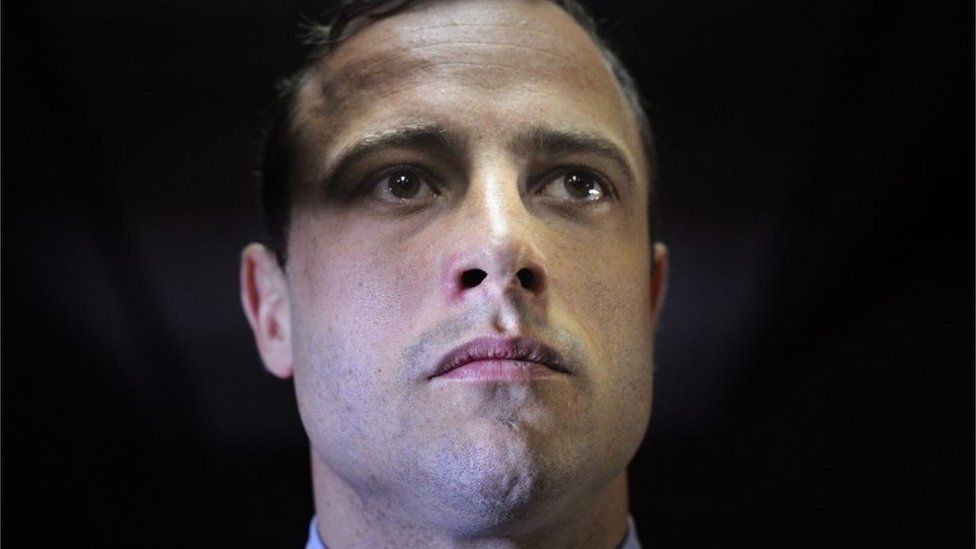Oscar Pistorius family condemns failure to release him
- Published

The refusal to free South African Olympic athlete Oscar Pistorius from prison on parole "flies in the face" of justice, his family has said.
On Monday, a judge-led panel upheld a decision taken in August to block his transfer to house arrest.
The panel also said Pistorius should undergo psychotherapy, but his family said he was already receiving it.
The 28-year-old was sentenced to five years in prison last year for shooting dead his girlfriend Reeva Steenkamp.
High Court Judge Thokozile Masipa found him guilty of culpable homicide, or manslaughter.
The 28-year-old double amputee had hoped to be freed in August after a parole board ruled that he could serve the rest of his five-year prison sentence under house arrest.
But the panel, led by Judge Lucy Mailula, ruled that Justice Minister Michael Masutha had acted correctly when he prevented the release on the grounds that it had been taken prematurely.
At the time of his intervention, Pistorius had been granted parole only six months into his five-year sentence.
Mr Masutha had argued that the law states that an offender can only be considered for parole after serving one-sixth of his sentence, in this case 10 months.
'Media hype'
Barry Steenkamp, father of Reeva: "Let justice take its course"
In a statement, the Pistorius family said it was concerned about the "legality" of delaying his release.
"Time has now cured" Mr Masutha's concerns and it could not understand why the panel had referred the case back to the parole board rather than taking a decision, the statement said.
"The failure to give proper - and consistent - effect to the Correctional Services Act flies in the face of administrative justice," it said.
"This experience leaves us with the uncomfortable conclusion that the public, political and media hype that was allowed to develop around Oscar's trial has undermined his right to be treated like any other prisoner - as per the prescripts of the Correctional Services Act."
Pistorius: Track champion
- Twenty gold medals to his name
- Just 17 when he won gold at the 2004 Paralympic Games
- At 2012 Olympics, became first ever amputee to compete alongside able-bodied athletes
Pistorius was "receiving regular and ongoing psychotherapy from not only his own psychologist, but also from prison psychologists and a social worker whose reports formed part of the parole decision process", the family added.
The panel had ruled that Pistorius should "be subjected to psychotherapy in order to address criminogenic factors of the crime he committed", referring to behaviour that leads to criminality.
The psychotherapy should be given "even if the offender is, indeed placed under correctional supervision", it added.
The panel also ruled that the parole board should consider imposing conditions restricting the use of firearms by the athlete.
The double amputee athlete said he mistook Ms Steenkamp for a burglar when he fired multiple shots though a locked door at her in his home on Valentine's Day 2013.
Judge Masipa acquitted him of murder, saying the prosecution had failed to prove the charge.
The prosecution has appealed against this acquittal and the case will be heard next month by some of South Africa's most senior judges.